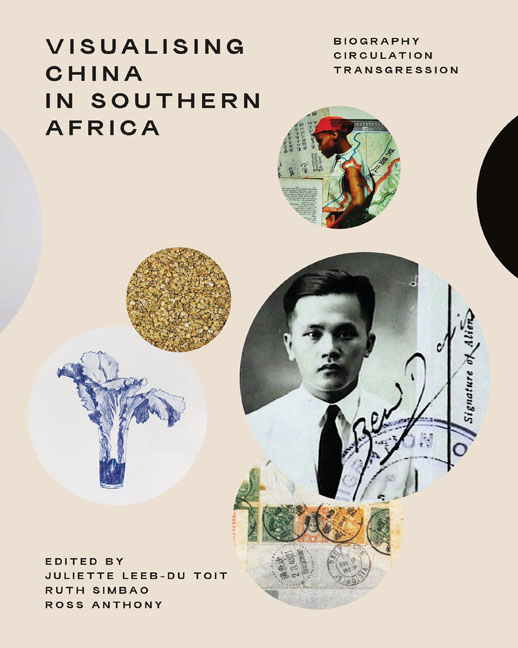16 - Boiling Frogs: Narratives of Coloniality in South African Art
Published online by Cambridge University Press: 24 November 2023
Summary
The reference to China in the work of many contemporary South African artists has its origin in the long-standing critical scrutiny of power, expressed in the arts. This emerged gradually in the early twentieth century, and extended to hegemonies that upheld the colonial endeavour and its later capitalist economic and segregationist policies, which were rooted in colonialism and had devolved into the apartheid system by mid-century. Dissident visual artists began cautiously to tread a subversive path that challenged the state in upholding freedoms often denied vocal or written expression in the public sphere. This visual dialogue was not confined to fine art or mainstream art, but instead occurred initially in cartoons, posters and politically inspired apparel. And while such work was often subject to a degree of censorship, it mostly escaped suppression. In the early twenty-first century, art in South Africa continues to function as a critical visual dialogue – marked by questioning, evaluating, sanctioning, parodying and resistance.
However, because of the racialised nature of South African politics, even a mildly critical rhetoric targeted at China by local artists sits uneasily in a South African context. Resulting in a certain reticence, or obliqueness, critique is more veiled, often submerged in an ongoing indictment of global capital and globalisation, ecological damage, the collusion of local elites, autocratic rule and human rights abuses, and an anthropocentric view of the natural world. In echoing past practice – of speaking from a position of privilege and power in scrutinising geopolitical racial, gendered and class-based hierarchies – South African artists (especially white artists) are well aware of the danger of replicating a criticality located in Western neoliberalism and its cynical gaze at another ‘Third World’ partner, China. Emerging South-South relations and discourse between formerly geographically and culturally marginalised peoples in the South, have resulted in a degree of mutual support that is often destabilised by supporters of neoliberal rhetoric.
Rather than expand on the many examples of qualms raised in South Africa about the impact of a Chinese economic vision and ambitions for Africa, it is perhaps more valuable to situate this discourse within a context from which many South Africans, artists in particular, draw their insights and critique. Artists are particularly sceptical of what is actually being mooted in current power discourse, by whom, and the ultimate impact of externally sourced power strategies in a rapidly shifting global order.
- Type
- Chapter
- Information
- Visualising China in Southern AfricaBiography, Circulation, Transgression, pp. 322 - 345Publisher: Wits University PressPrint publication year: 2023



